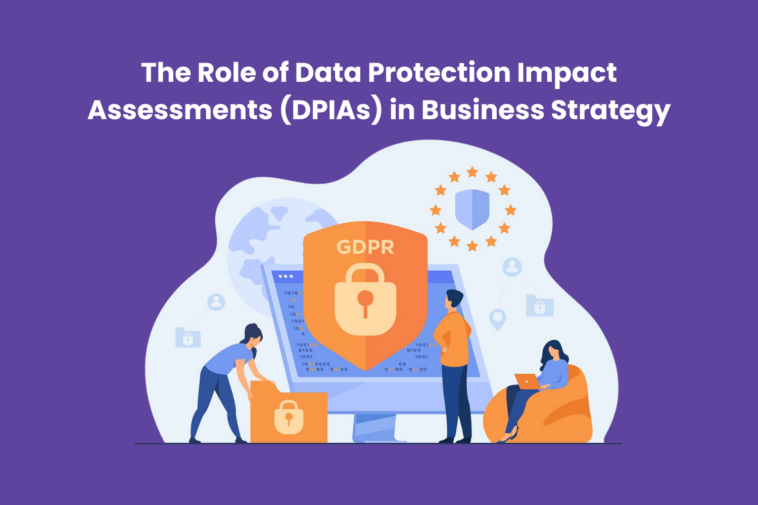Many businesses rely heavily on data, and the safety of private data is, therefore, of utmost importance. It has become crucial for companies to comply with laws like the General Data Protection Regulation (GDPR) as they struggle with the complexities of data privacy and security on a global scale. Businesses often resort to a GDPR Course to keep staff members informed of recent advancements in data security and to ensure that their policies are in line with GDPR Principles.
In this blog, we’ll examine the vital role that Data Protection Impact Assessments (DPIAs) play in influencing contemporary business strategies, ensuring GDPR compliance, and assisting organisations in navigating the data protection landscape.
Understanding GDPR Principles and the Need for Compliance
Understanding the fundamental principles of GDPR is essential before exploring the relevance of DPIAs. The General Data Protection Regulation, a comprehensive regulatory framework unveiled in 2018, aims to protect the personal information of residents of the European Union (EU). The GDPR defines seven important principles that businesses must follow when managing personal data: lawfulness, fairness, and transparency; purpose restriction; data minimisation; accuracy; storage limitation; integrity and confidentiality (security); and accountability.
Businesses often resort to GDPR courses to educate their workers and stay current on the most recent data protection advancements in order to maintain GDPR compliance. These principles form the basis of data protection plans and have an impact on how DPIAs are implemented inside an organisation.
Conducting DPIAs for Effective Risk Management
DPIAs are a crucial weapon in the toolbox of businesses looking to align their strategy with GDPR tenets. In essence, they provide a systematic approach for assessing the possible influence of processing activities on the security of personal data. Businesses may detect, evaluate, and reduce the risks connected to data processing operations with the use of DPIAs. Finding a balance between data value and privacy protection is the ultimate objective.
Key Steps in Conducting a DPIA
Numerous crucial phases make up the DPIA process:
Identify the Need for a DPIA
Choosing if a DPIA is required for a particular processing activity is the first step. The type, extent, context, and aims of the data processing often play a role in this choice.
Describe the Processing
In this section, the organisation provides a detailed description of the processing activity, including the different kinds of data involved, the processing goals, and the recipients of the data.
Assess Necessity and Proportionality
This stage evaluates whether the processing operation is necessary in light of the intended goal and if it complies with GDPR standards like data accuracy and minimisation.
Evaluate Risks to Data Subjects
DPIAs seek to identify possible threats, such as illegal access or data breaches, to the privacy of specific people’s data. An essential component of risk management and GDPR compliance is this assessment.
Mitigate and Monitor Risks
Risks are detected, and then precautions are taken to reduce them. These precautions are continually monitored to guarantee their effectiveness.
Documentation and Review
Finally, DPIAs call for a complete recording of all choices taken, their justifications, and continuing reviews of processing actions.
Integrating DPIAs into Business Strategy
DPIAs must be included in company strategies because they encourage a proactive attitude toward data security and GDPR compliance. Organisations may lessen the chance of data breaches and the resulting penalties by recognising and addressing possible risks upfront. DPIAs also improve a company’s reputation as a trustworthy one in the eyes of both customers and regulatory organisations.
DPIAs in Action
Consider a real-world illustration. In order to establish a new e-commerce platform, a retail firm will need to handle a large amount of data, including user profiles, payment information, and purchase history. The business decided to undertake a DPIA to ensure GDPR compliance.
The DPIA identifies possible gaps in data security and privacy, which forces the company to put strong encryption, access restrictions, and a thorough privacy policy in place. This not only protects consumer information but also fosters a relationship of trust with clients who cherish their privacy.
Benefits of Integrating DPIAs into Business Strategy
DPIAs provide a number of benefits for your company’s strategy that go beyond regulatory compliance and risk reduction.
- Risk Mitigation: Businesses may lessen the chance of data breaches and the ensuing financial and reputational harm by proactively addressing data protection concerns.
- Regulatory Compliance: DPIAs are essential in guaranteeing GDPR compliance and aiding businesses in avoiding costly fines and penalties for non-compliance.
- Customer Trust: Organisations that place a high priority on data security develop a sense of trust with their clients, which may foster greater customer loyalty and long-term success.
- Efficiency: DPIAs may find data processing inefficiencies, which results in simplified processes and cost savings.
- Competitive Advantage: Privacy is becoming more and more of a concern, and companies that excel in data security may utilise it as a differentiating feature.
Conclusion
DPIAs play an indisputably vital part in company planning. They help companies comply with GDPR principles, traverse the complicated data protection environment, and finally establish a reliable brand. Businesses may reduce risks, assure compliance, and show a commitment to protecting consumer personal data by incorporating DPIAs into every aspect of their operations. Considering specialized IT Security & Data Protection Courses alongside DPIAs can further enhance a company’s data protection strategies, ensuring a comprehensive approach to IT security. This strategy not only protects their data but also prepares the road for long-term success in a cutthroat industry.



